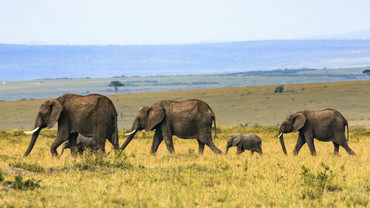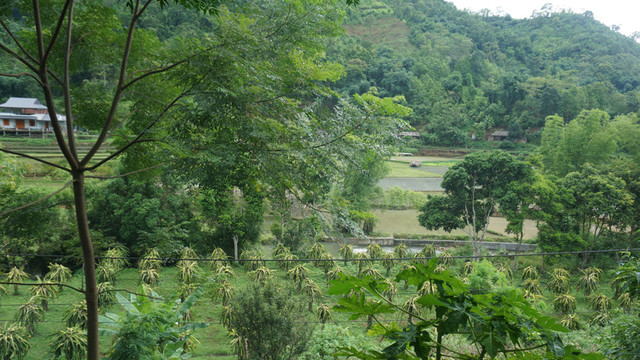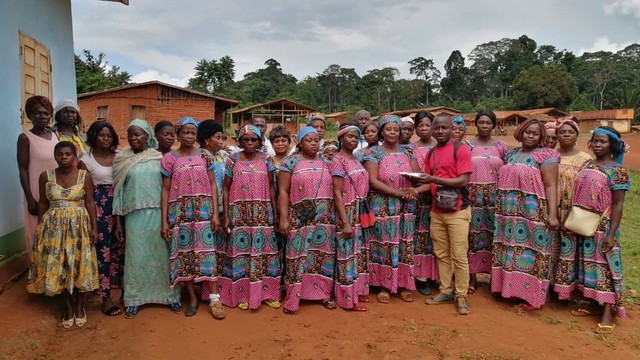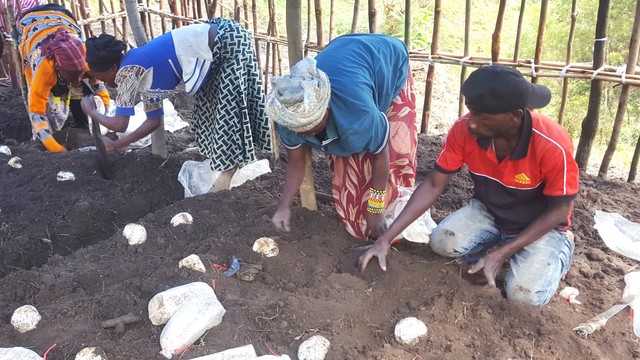Pilot scheme for human-wildlife conflict insurance in Kenya welcomed
Key stakeholders in plans to develop an insurance scheme in Kenya to deal with human-wildlife conflict have hailed a government decision to move ahead with a pilot project.
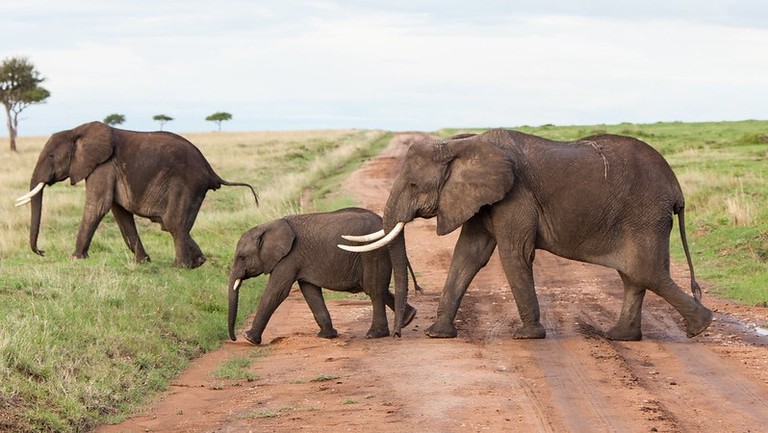
Elephants crossing a road in Masai Mara national reserve in Kenya (Photo: Matt Biddulph, via Flickr, CC BY-SA 2.0)
News that the Kenyan government is trialling an insurance scheme that will compensate farmers who are affected by conflict with wildlife has been welcomed by speakers at a recent conference. This decision is key to promoting the protection of both wildlife and the people who live closest to wildlife.
Animals, such as elephants, are a major source of human-wildlife conflict in the country. They trample or eat crops, damage property, and sometimes cause human injury or even death. In many cases this leads to the killing of wildlife by local people – in defence or in revenge, or through the support of external poachers.
The decision by the government to finance the premiums on pilots on human-wildlife conflict insurance was taken as part of President William Ruto’s first budget in February.
The announcement follows recommendations from a four-year project which saw IIED and partners in Kenya show the value of such insurance schemes and highlight how they could work as part of an effective national approach to tackling human-wildlife conflict.
Paul Steele, IIED's chief economist, said he was pleased the Kenyan government had prioritised the issue of human-wildlife conflict: "Ownership and leadership from the government of Kenya has been built into this project from the start, and we welcome them taking this work into the next stage of implementation."
Steele was present at the International Conference on Human-Wildlife Conflict and Coexistence, which took place in Oxford at the end of March. This decision is key to promoting the protection of both wildlife and the people who live closest to wildlife.
Among the speakers were Kenya’s wildlife principal secretary Silvia Museiya. In an interview with IIED, she said the government had secured money for piloting the insurance scheme from July.
“The government is prioritising compensation for victims as part of its mandate towards making a people-centred government,” she said. “We are working with a number of insurance companies or consultants to develop a product. A lot of them are here, in this conference.”
AB Consultants led on the design of insurance schemes in Kenya in the project with IIED. Their managing director, Barbara Chesire, said: “We see an opportunity for innovation and leveraging other existing insurance schemes that have been launched. And therefore protecting the people who live closest to the wildlife who then have to pay the ultimate price of living next to wildlife. So protecting them – or rather giving compensation for death and injuries, for crop, livestock and property damage.
“Learnings from Kenya could be transferred to other countries and other ecosystems. I think a lot of people around the world are waiting to see what happens in Kenya and how we can then transfer this knowledge.”
Contact
Paul Steele (paul.steele@iied.org), chief economist, IIED's Shaping Sustainable Markets research group
